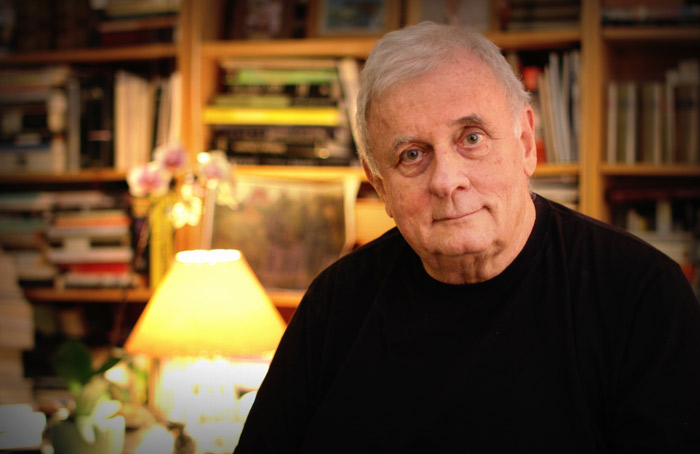My Kind of Girl by Buddhadeva Bose (1908-74) is a charming Bengal quartet of tales, a sort of truncated Indian version of the Decameron. Four upper middle-class men, all professionals, are stranded in a cold train station waiting room all night; they tell each other real-life stories to while away the time. They have been inspired by the sight of an attractive pair of newlyweds who are also waiting hours and hours for the next train. The couple has hollowed out a little cozy space in which to sleep, but even in sleep they seem tenderly aware of each other.
Tag: readers write back
Rick Moody on LENZ by Georg Büchner

Lenz by Georg Büchner is bit of a mystery on the face of it—it was published only partially as of the author’s death, and was written toward the end of his three-year frenzy of productivity that also included Danton’s Death and the unfinished Wozzeck. Like just about everything that Büchner managed to accomplish during his high period of composition, it is complex, fragmentary, philosophical, uncanny. It is also so heavily reliant Johann Oberlin’s diary of Jakob Lenz’s final days as to rest at the edge of plagiary.
 And yet: Lenz is, for the year 1836, remarkably interior, remarkably conscious of the uncertainty or stability of identity. Indeed, the free incorporation of Oberlin’s writings into Büchner’s story serve as an emblem for the porous self that is the character of Jakob Lenz. Like the character of Lenz, the text commences in a way both sturdy and authoritative, though with a generous serving of idiosyncrasies, and gets more impressionistic and desperate as it goes along. By the time of (spoiler alert!) Lenz’s death it’s sort of impossible to tell where Lenz/ Büchner/Oberlin all begin and end. Likewise, generically speaking, where non-fiction ends and fiction begins. Considering that Austen had not long before put down her pen, and the Brontes were not yet begun, Büchner’s accomplishment—psychological realism of a very compelling sort–has a singular cast to it.
And yet: Lenz is, for the year 1836, remarkably interior, remarkably conscious of the uncertainty or stability of identity. Indeed, the free incorporation of Oberlin’s writings into Büchner’s story serve as an emblem for the porous self that is the character of Jakob Lenz. Like the character of Lenz, the text commences in a way both sturdy and authoritative, though with a generous serving of idiosyncrasies, and gets more impressionistic and desperate as it goes along. By the time of (spoiler alert!) Lenz’s death it’s sort of impossible to tell where Lenz/ Büchner/Oberlin all begin and end. Likewise, generically speaking, where non-fiction ends and fiction begins. Considering that Austen had not long before put down her pen, and the Brontes were not yet begun, Büchner’s accomplishment—psychological realism of a very compelling sort–has a singular cast to it.
Lenz is a writer’s cry from psychic hell (perhaps Büchner’s, as well as Lenz’s), and a astounding act of drawing from nature, where the nature in question is not hill and dale (though the landscape is in the foreground here), but the soul in distress. The Archipelago edition of Lenz (in Richard Sieburth’s exceedingly graceful translation) fills out this mystery of the original text by preserving the German on the recto, and by including not only the relevant portion of Oberlin’s diary, its source material, but by filling out the volume with some writings by Lenz’s contemporary and acquaintance Johann Wolfgang von Goethe. Goethe’s passages supply an important historical portrait of Lenz and give him aspects of self that are unappreciable in Büchner’s text. (Practical joker!) These ancillary materials enable Büchner’s prose fragment to hover forth from its fragmentary immateriality, so that it is more earthly and less conceptual, giving us more freedom to enjoy its stylistic lyricism.
I found myself somewhat astounded by the assault of this work. Like of Heinrich von Kleist before it, Lenz recalibrates the literature of its time, and in this fine translation by Richard Sieburth, with its wealth of supporting material, it recalibrates our literature too, reminding us how unsturdy are these sands of the innermost self.

